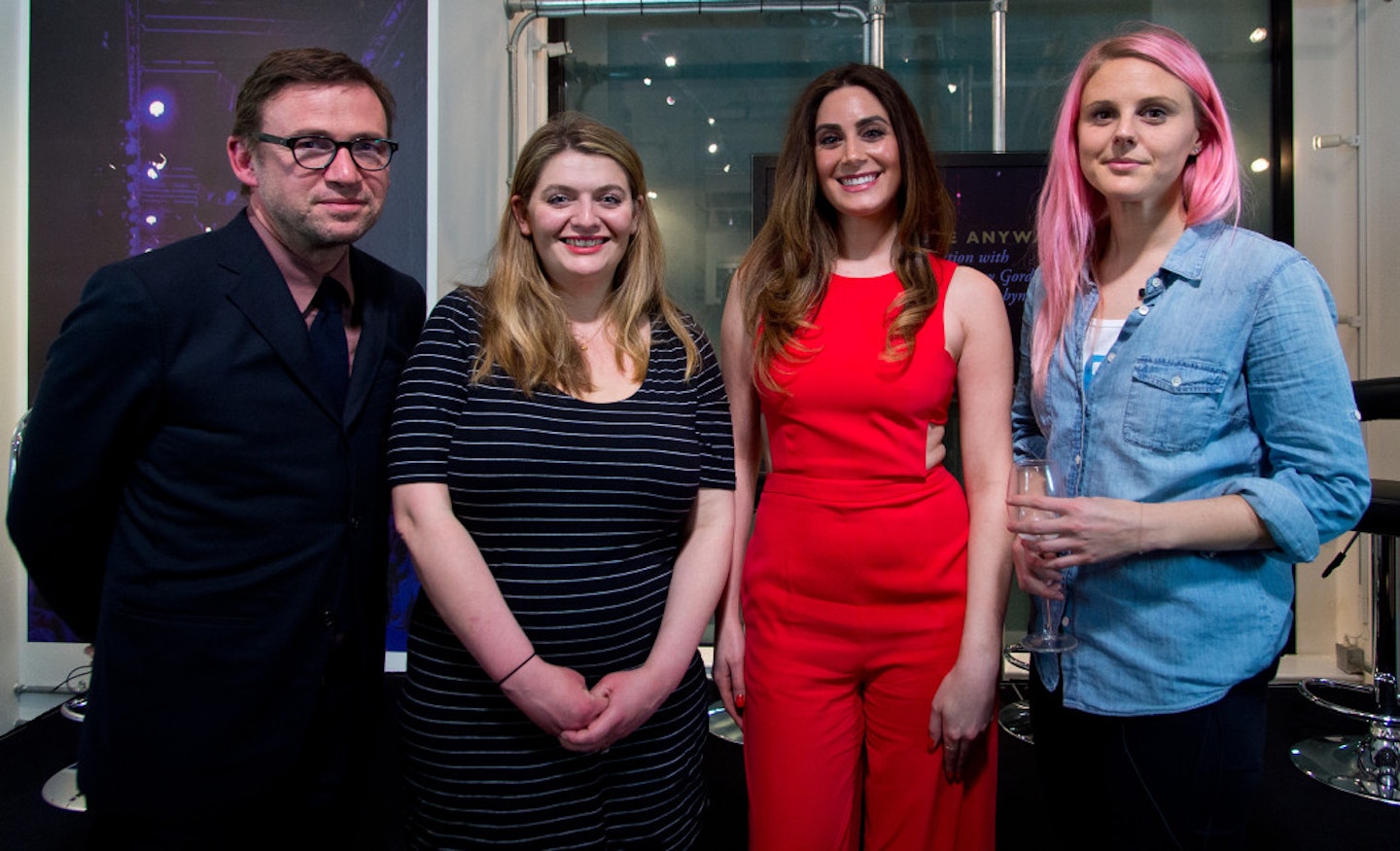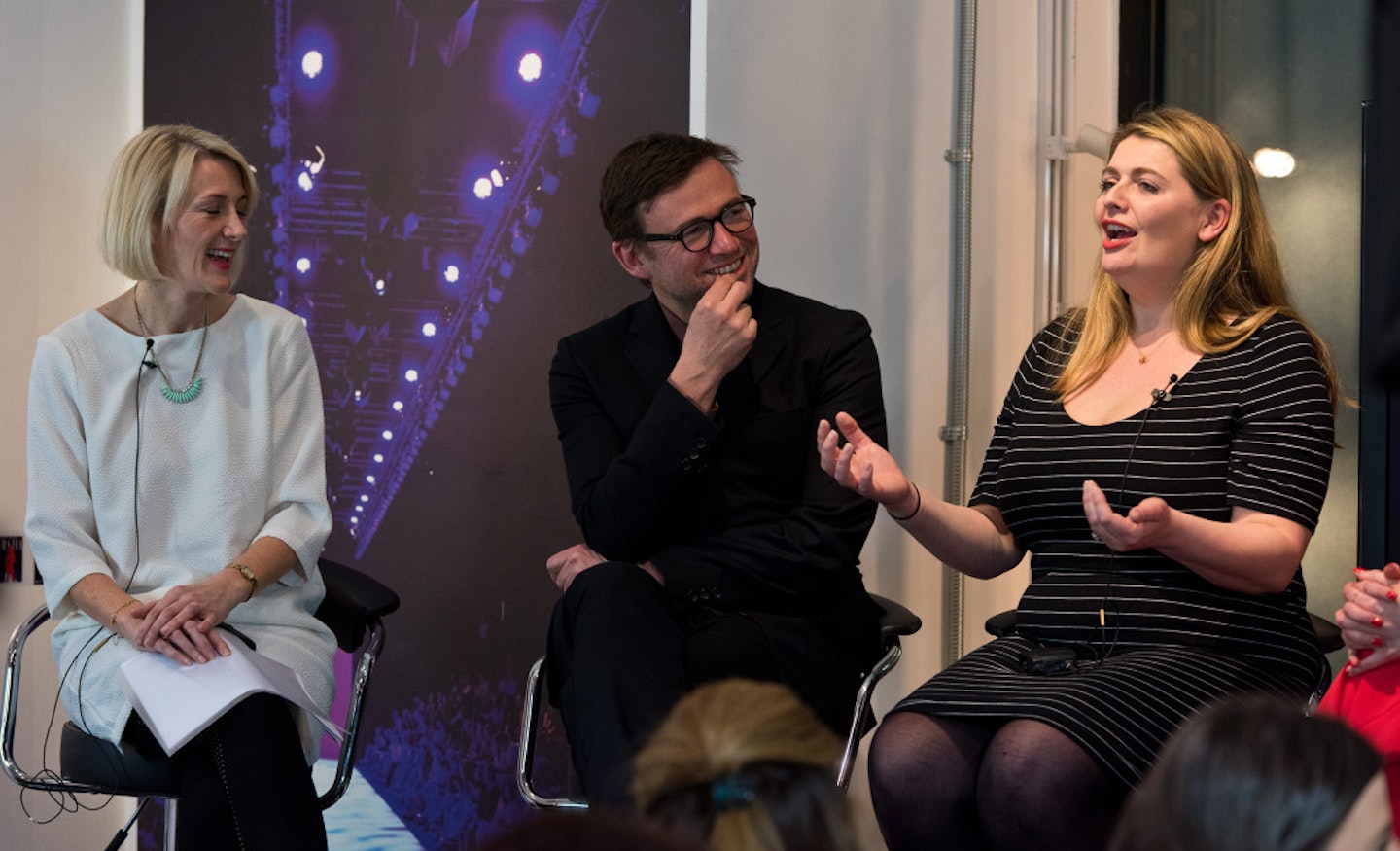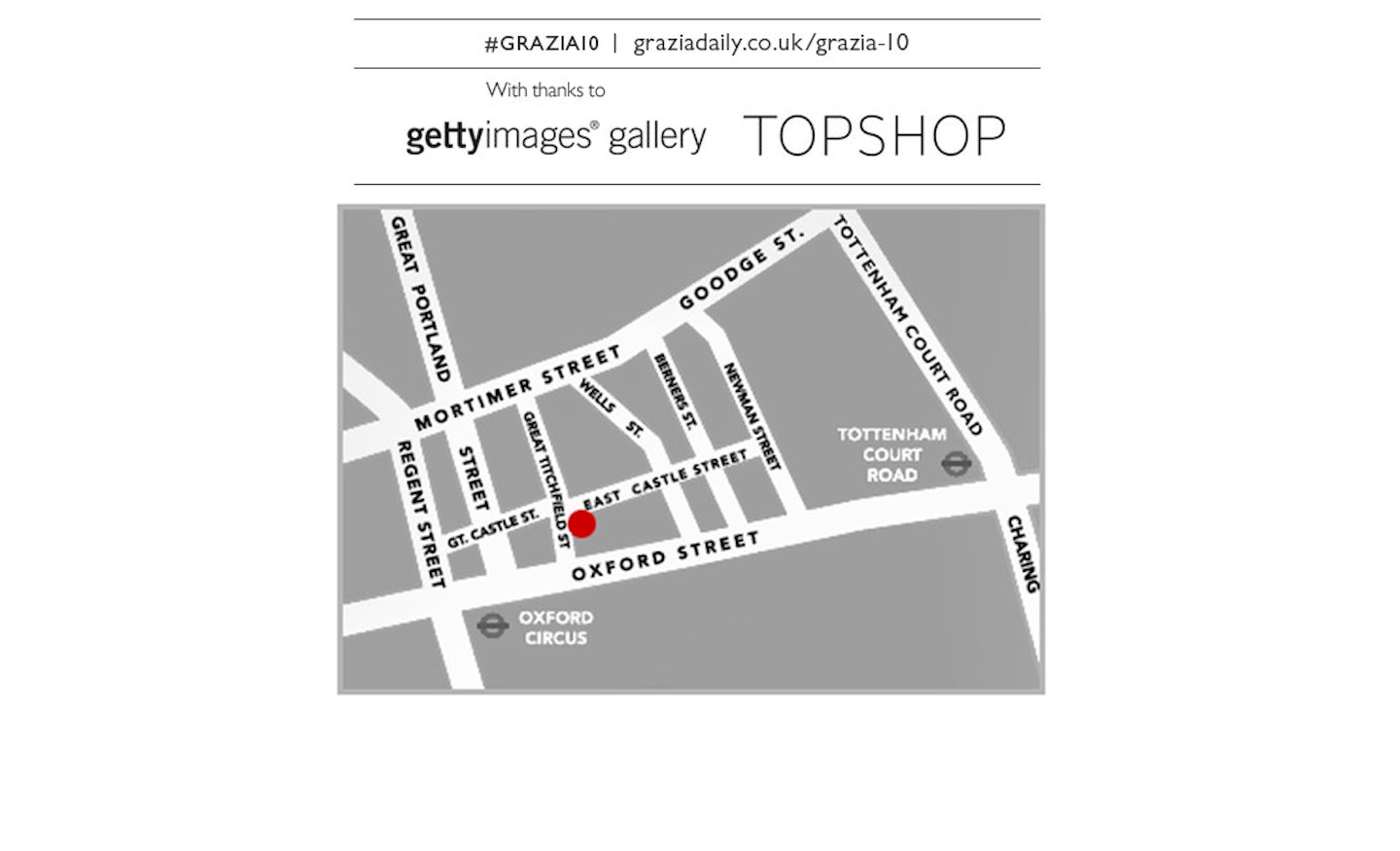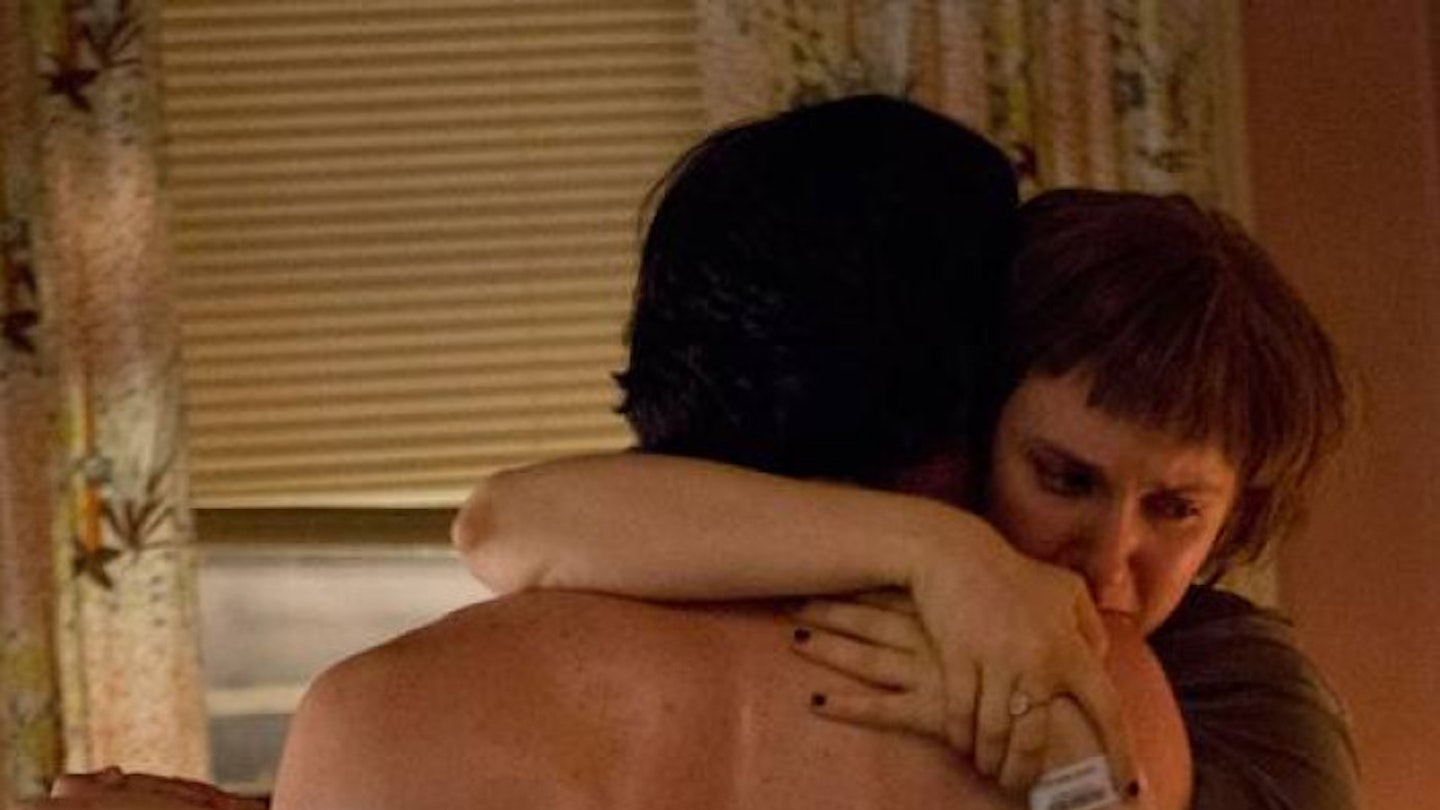It may be fashion month, but here at Grazia HQ we are also busy celebrating the fact that we are 10 years old. To honour the occasion we are hosting a celebratory exhibition at the Getty Images Gallery in central London (it's open to the public so do pop in), and with it, beginning a series of TenTalks (check out all the info on the forthcoming talks here) with the industry's biggest movers and shakers.
We've so far been privvy to the tales of hairstylist to the likes of Kate Moss and Kim KardashianSam McKnight, picked up some amazing beauty products and tips from the industry's favourite makeup artist Wendy Rowe and last night we delved into 'What Is Love Anyway?' with a little help from our fab panellists One Day author David Nicholls, columnist Bryony Gordon, Tinder VP Rosette Pambakian and Dattch founder Robyn Exton, chaired by the brilliant Kathryn Knight.
Of course, from one generation to the next love, relationships and (particularly) sex have changed massively, no doubt our grandparents look at everything we do in bemusement, but in the 10 years since Grazia first emerged there's been an at times unrecognizable shift. This is due, in no small part to the advent of social media and time and again evidenced brilliantly in Lena Dunham's gamechanging Girls. Our panel of expert guests spoke on the effect apps like Tinder have had on love and relationships, women being on more of an equal footing than ever before and more.
Watch a video of the talk below...
Allow us to introduce our 5 best bits...

1. The world of online dating is way less scary than it used to be
"No offence but I'm glad I managed to slip off the dating scene before Tinder," joked Bryony Gordon minutes into the conversation. But by the end, both she and a previously reluctant David Nicholls had changed their tune. Indeed, meeting a partner online is these days much more socially acceptable and even normal than it was ten years ago. "It used to be like... 'well, she's decided to go on the Internet'" said Bryony Gordon, grimacing, "it was almost like the laaast place you'd go before being put out to pasture, whereas now I have loads of friends who have met their husbands online." David Nicholls who described himself as once upon a time finding dating "positively excruciating and embarassing," explained how dating these days - aided, no doubt by the advent of social media and all that came with it - is characterised by a lot more frankness and openness.
**2. Tinder is more than just a hook-up app, you know. **
More than 18,000 (!) people are reportedly swiping on Tinder every second. In.Sane. Part of the appeal, according to Tinder VP Rosette Pambakian is that Tinder affords users anonymity, whereas on other social networks such as Facebook it's (too) easy to stalk someone's entire lives in minutes. Indeed, Tinder's been so successful in pairing people up they apparently receive an abundance of wedding invitations, "we've even had requests to get married *at *the Tinder offices," laughed Rosette. In fact, it's only in the UK that it's seen as a hook-up tool, with many in the US using it as a serious dating app. Part of the reason behind its success, suggested Rosette, is that dating websites often require users to limit what they're looking for, checking off religion, habits, interests and more before so much as even signing up. "It's just so limiting, and not what happens in real life," explained Rosette. "If you were to meet someone in a bar or wherever they wouldn't have 'jewish' or 'smoker' plastered on their forehead, you'd have to figure it out for yourself through conversation, and by that point it may no longer be a game changer," she added. "Tinder is just like real life, only better, because you have thousands more options to choose from."
3. Women aren't just hanging around waiting to be asked out anymore
"The double opt in is our most popular feature," explains Rosette, of the fact that both parties need to have swiped right in order for a match to be made and conversation to progress. "It means that someone will only be able to talk to you if you like them, too, which puts women on an equal footing," she explained. Indeed, the culture of dating 'back in the day' was a lot more of the 'woman hanging around at a bar waiting for a man to come ask her out,' variety, whereas now women can, and repeatedly do, put themselves out there and make advances, too.
New dating app Dattch - the first app created specifically to help lesbian, bi-sexual and not so straight women find each other takes things one step further, and is designed by women for women. Founder Robyn Exton explained: "most dating apps are designed and set up by men, and we found that that didn't really work for our female users." Why? Well, after all, how much can you tell about someone from a picture of their face? Combining the concept behind Pinterest with a dating app, Dattch was born, where users compile interest boards of the kind of things they're into in place of a profile picture. "If anything it takes 'You look hot!" out of the equation as a way to break the ice. It's a lot easier to make conversation and genuine connections when you can tell so much about a person," said Robyn.

**4. Sexuality is more fluid than ever **
Several issues of Grazia ago, a writer shared how she had found love with another woman through using Tinder, marking the first time she had ever been with one. Thanks to a 'joke' her friend pulled on her - changing her sexual orientation to both men and women - the user discovered something she may otherwise never have done - she was bisexual. Chair Kathryn Knight raised an interesting question, namely: Is there something about the Internet that makes people more open? And, indeed, had it been 50 years ago, might she never have discovered that she was bisexual? Well yes actually, she may never have done. Robyn explained how 40% of users on Dattch identify as 'bicurious', giving them an open, non judgemental space to experiment - something that most certainly didn't exist before. Indeed, these days it's a lot more common for women to go from dating a man to dating a woman and back, without anyone so much as blinking an eyelid.
5. It's not the stuff of fairytales
****"We grew up watching romcoms and being told there was only one way to grow up and be happy, and that was by settling down with 'the one,' but maybe the younger generation won't have that single mindset, and maybe that's okay!" said Robyn. "Maybe they'll have multiple partners, or maybe they'll be alone and know that that's alright, too," she added. David agreed, noting that even in fiction romantic series are harder to sustain, hence the singular endings that may have contributed to that mindset: "It's easy with thrillers, you catch who did it and that's it, with love stories it ends with a kiss or at the wedding, but real life isn't like that. Real life very rarely ends with a kiss."
So what is love, anyway? We still don't know, but we had a jolly good time - and raised some interesting thoughts - trying to figure it out!
Please drop in to the free exhibition or book a place at a TenTalk. The exhibition runs from 23rd February - 14th March and is open to the public Monday Friday (10am-5.30pm), Saturday (12-5.30pm). Please note the gallery is closed when the #Grazia10talks are on.
See the list of Tentalks and ticket links below.
Please note that tickets are limited. More tickets may be available to purchase at a later date. Please check Grazia’s Twitter and Facebook updates for more info.
**Can't make these? Don't fret! **If you do miss out on tickets to any of the events, you can enjoy #Grazia10 highlights every day right here at Graziadaily.co.uk.

